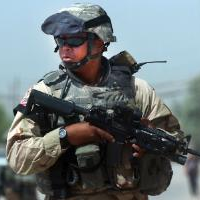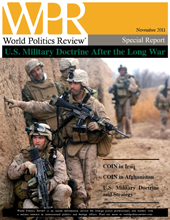
In a recent World Politics Review article, U.S. Army Col. Gian Gentile declared that COIN is “dead” as the motivating intellectual concept for the U.S. Army. Although combat continues in Afghanistan, to some extent guided by the precepts set forth in the Army’s “Field Manual 3-24: Counterinsurgency,” Gentile argues that the inability of COIN doctrine to produce a definitive outcome in Afghanistan, along with the end of fighting in Iraq, serves to render the school of thought obsolete. Indeed, Gentile argues that the Army should abandon the “search for lessons of strategic value from the past 10 years of counterinsurgency […]

